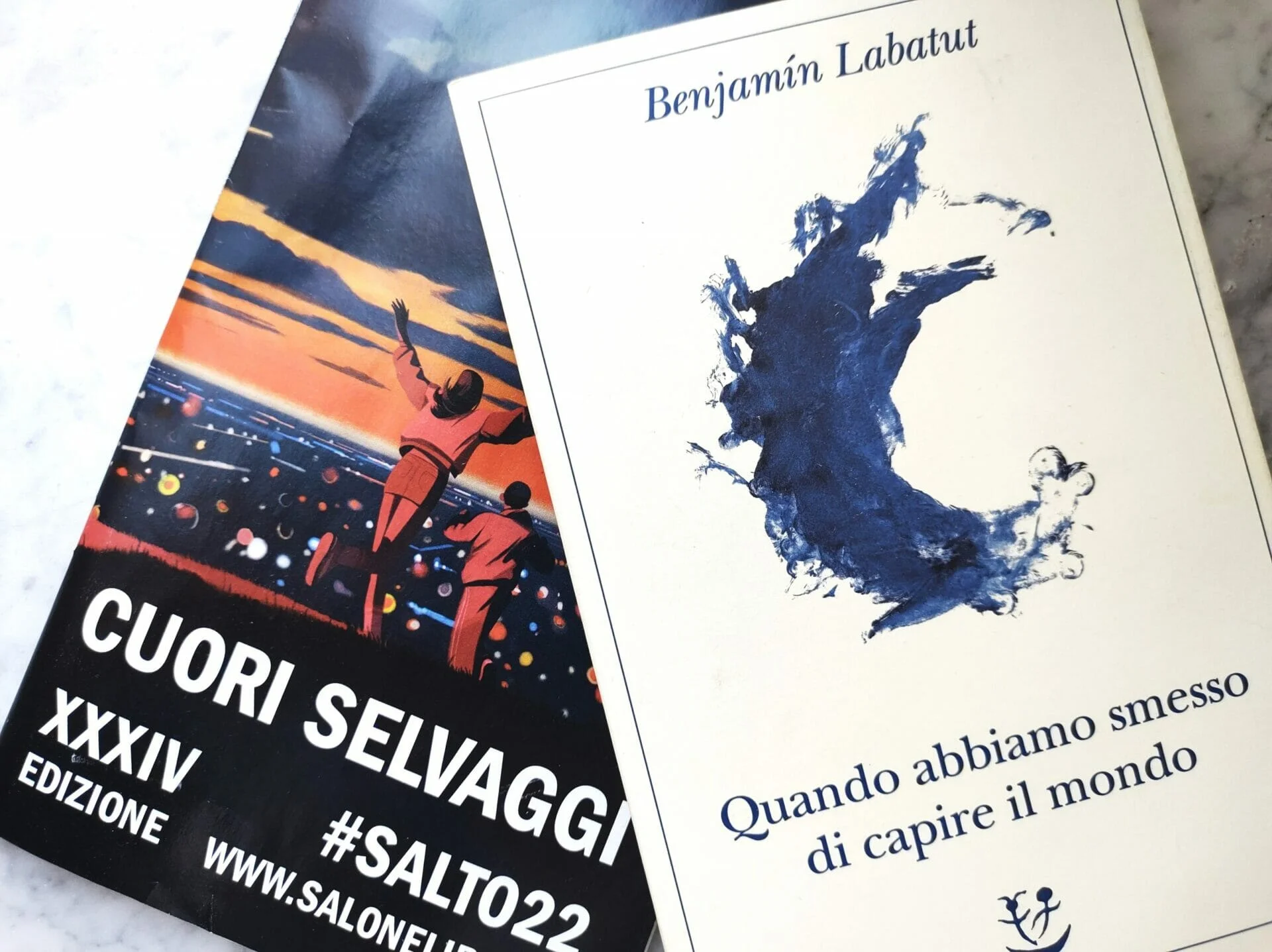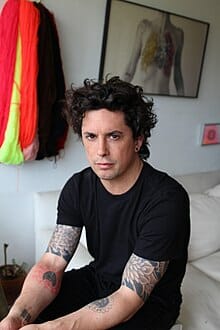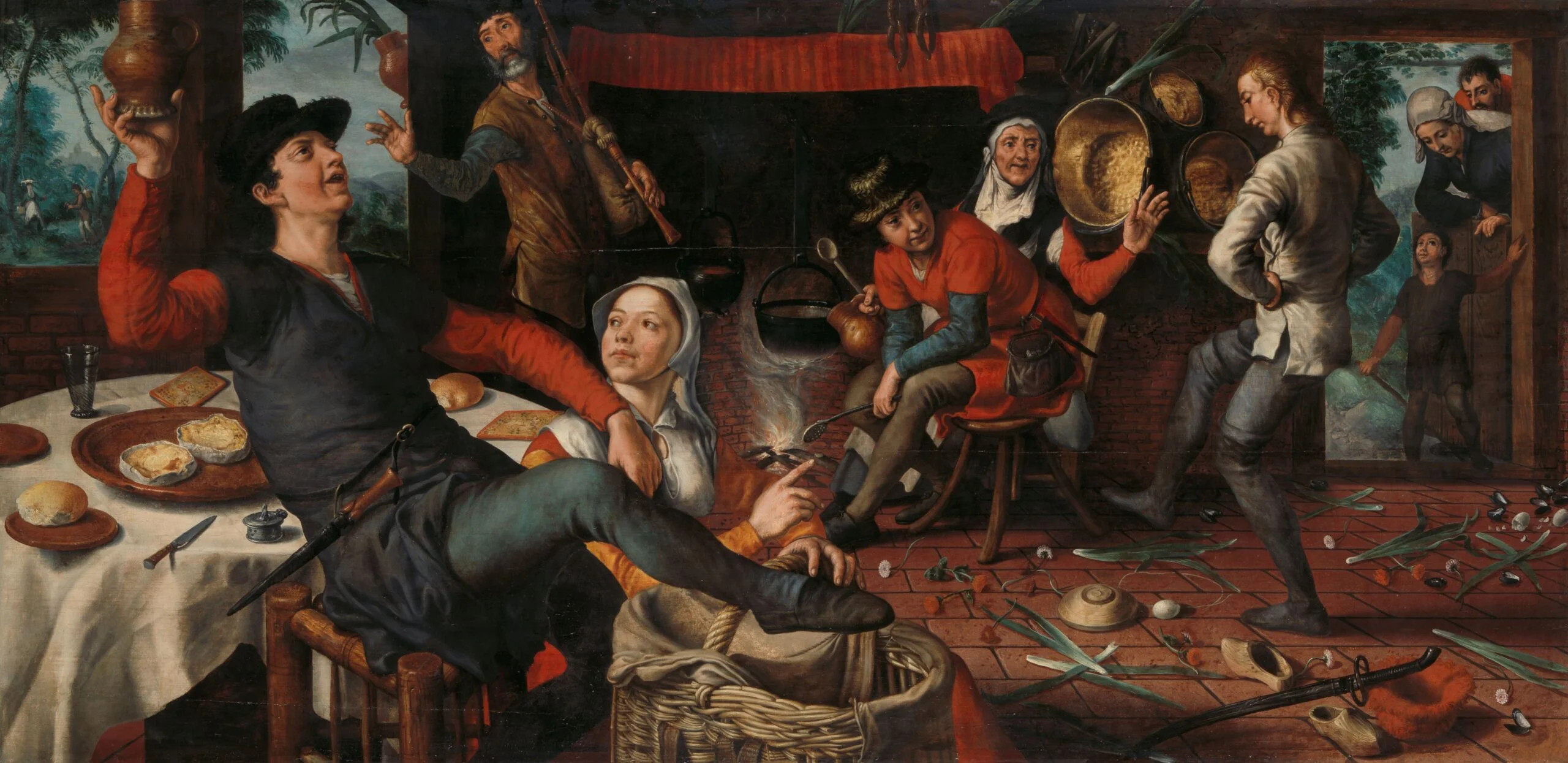
When the Chilean writer Benjamín Labatut made his appearance at the Turin International Book Fair, on May 20, you could hear people say that he looked like a rockstar. But when he spoke of his art, the 42-year-old author sounded like an XVIIth century alchemist. “I feel that literature is one of the dark arts” he declared in a conversation with writer and mathematician Chiara Valerio. And when reading Labatut’s works, the reader really may feel the thrill of some sort of initiation ritual.
This obsession with darkness is probably what makes Labatut’s so fascinating. His third book, When We Ceased Understanding the World was one of the major literary events of the last two years. It suddenly brought its author to international stardom, making him a key representative of Chile’s contemporary literary landscape. But Labatut’s interest in darkness goes beyond a personal fascination. As he explained to Valerio, casting a look into the shadows is the ultimate purpose of literature. And its way to knowledge is unlike any other — some sort of obscure enlightenment.

The beating heart of literature
To anyone who’s read Labatut’s works, such a theory will be hardly surprising. His books are filled with horror and frenzy. When We Ceased Understanding the World is a collection of short non-fictional stories about the most disquieting scientific discoveries of the twentieth century — whether it may be the invention of cyanide to the first theorization of black holes. The philosophical stance behind the collection is clear. Any time we cast new light on a given object, we inevitably project new shadows.
But the intrinsic horror Labatut finds in the seeking for the truth is also what makes that very search so attractive. In his latest book, The Stone of Madness, he advocates for madness as a possible path to understanding the complexities of the contemporary world. When applied to writing, this approach has already been proven to work. And Labatut’s case makes it obvious.
What makes literature so close to the dark arts is not simply the knowledge it produces, but the way it does it — which is constitutively obscure. When asked about his interest in mad scientists, the author didn’t have to think about it. “Delirium is the beating heart of literature” he stated. Only through letting the writing flow untamed can one hope to produce something that is at least remotely alive.

A ritual object
There’s something mystic, even esoteric to Labatut’s idea of literature. And he doesn’t make a mystery of it. In order to write, and to write well, one must distance oneself from the real world: “Think of William Burroughs‘ writing exercises”, he added. Burroughs suggests writers do things such as sitting at a café and singling out all the people dressed in red. These techniques, Labatut explained, are designed exactly for that: to get you out of your ordinary mindset.
But what’s more intriguing — and even challenging to the audience — is the author’s take on reading. It should be taken just as seriously as writing. “I read less and less”, he explained. And while it may be surprising to hear this coming from a writer, his reasoning is sound. Treating books as a form of entertainment is mistaken: they are ritual objects one should really get prepared to approach. Any reader who has really been moved by a book at least once in their lifetime will understand this all too well. Reading just for fun deprives literature of its deepest sense: the inescapable hope that it will turn you upside down. The hidden expectation that it might change you forever. This is probably the kind of enlightenment this dark art is for. “I’m always looking for authors to fall in love with”, Labatut explained to Valerio. And after all, is there any delirium greater than that?”.





